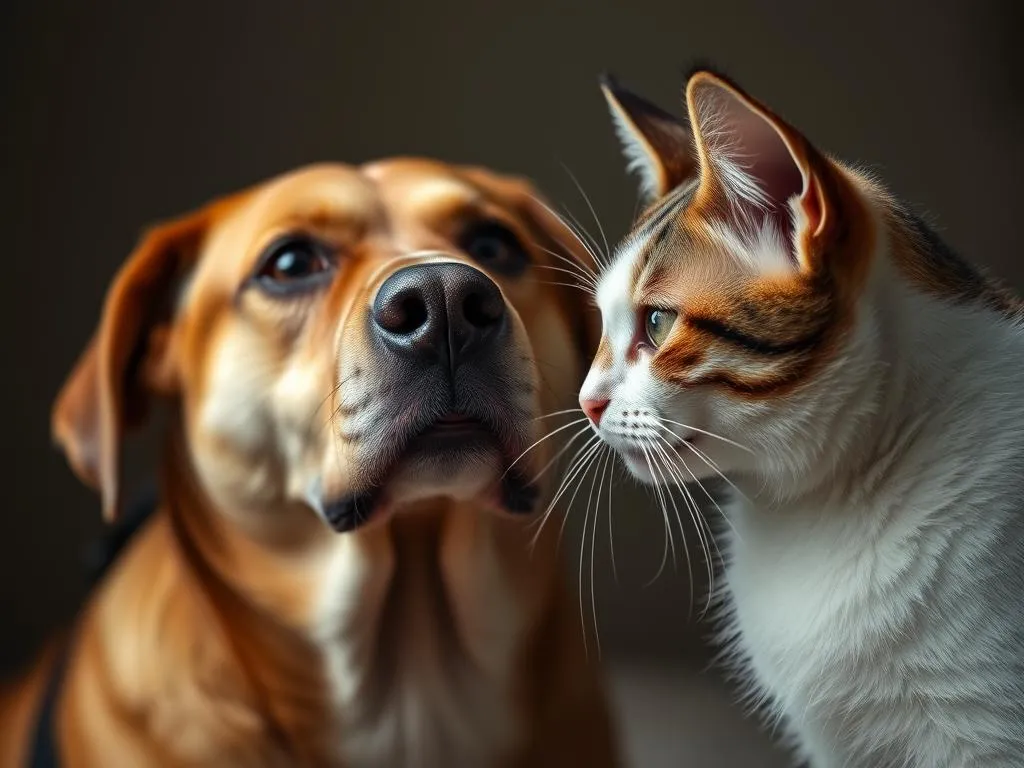
Introduction
When it comes to pet ownership, the debate between being a dog person and a cat person often sparks lively discussions. While both types of pet owners share a common love for animals, their preferences and lifestyles can be quite different. Dogs and cats are two of the most popular pets globally, each bringing their unique charm and challenges. Understanding these distinctions can help potential pet owners make informed decisions about which pet might fit their lifestyle better.
The Appeal of Dogs
Characteristics of Dog Owners
Dog people often exhibit certain traits that align with their choice of pet. They are typically more extroverted and enjoy an active lifestyle. Engaging with their dogs at parks, training classes, and community events fosters a sense of camaraderie among fellow dog owners. This communal aspect of dog ownership creates opportunities for social interaction, making it easy to bond with others who share the same passion for canines.
Lifestyle Implications
Owning a dog significantly impacts daily routines. Dog owners typically incorporate regular walks, playtime, and training sessions into their schedules. These activities not only keep the dog healthy but also provide essential physical exercise for the owner. However, this commitment can present challenges, especially when it comes to travel. Finding pet-friendly accommodations or arranging for dog sitters can complicate spontaneous trips. Therefore, prospective dog owners must be prepared for the time and effort required to give their furry friends the love and attention they need.
Benefits of Being a Dog Person
Being a dog person comes with numerous emotional and physical benefits. Dogs are known for their loyal companionship, often forming deep bonds with their owners. This loyalty can lead to reduced feelings of loneliness and improved mental well-being. Additionally, the physical health benefits associated with dog ownership cannot be overlooked; regular walks and outdoor activities contribute to a more active lifestyle. Lastly, the social engagement provided by dog parks and community events allows dog owners to connect with others, fostering friendships centered around their shared love for pets.
The Appeal of Cats
Characteristics of Cat Owners
In contrast, cat people often have a different set of traits. Generally seen as more introverted and independent, they appreciate the low-maintenance companionship that cats offer. Cats are known for their self-sufficiency, which appeals to those who may not have the time or energy to dedicate to the more involved lifestyle that comes with owning a dog. This independence allows cat owners to enjoy their pets without the same level of commitment required by dog ownership.
Lifestyle Implications
The daily routines of cat owners typically revolve around litter box maintenance, feeding, and occasional playtime. Cats are generally content to entertain themselves, making them ideal pets for individuals with busy schedules or those who travel frequently. Unlike dog owners, cat owners can often leave their pets alone for longer periods without worry. This flexibility can be a significant advantage for those who lead hectic lives or prefer spontaneous travel plans.
Benefits of Being a Cat Person
There are several emotional benefits to being a cat person. Cats can provide affection and comfort, often curling up next to their owners for a cozy cuddle session. The lower demands of cat ownership allow for a more relaxed lifestyle, enabling owners to enjoy their pets without the stress of frequent walks or training. Additionally, the ability to maintain flexibility in daily routines and travel plans is an appealing aspect for many cat owners, making life with a cat a bit easier.
Comparative Analysis
Social Life and Community
When comparing the social lives of dog owners and cat owners, it’s clear that dogs often encourage more social interactions. Dog parks and training classes serve as gathering places where owners can meet and engage with others. Conversely, cat people may find their social opportunities limited, as cats are less likely to facilitate community engagement. However, both types of pet owners can form friendships and connections through shared interests, albeit in different ways.
Health and Well-being
The mental and physical health benefits associated with pet ownership are well-documented. Studies have shown that dog owners tend to have lower levels of stress and anxiety, thanks to the companionship and physical activity their pets provide. Conversely, cat owners can experience similar benefits, such as reduced stress levels from the calming presence of their felines. While both types of pets contribute positively to their owners’ well-being, the means through which they do so can differ based on the lifestyle and engagement levels of each type of pet owner.
Lifestyle Compatibility
Certain personality types may naturally gravitate toward either dogs or cats. For those who thrive on social interactions, physical activities, and community engagement, being a dog person may be the ideal choice. On the other hand, individuals who value independence and a more laid-back lifestyle may find that they align more closely with being a cat person. Additionally, living situations play a role; urban dwellers with limited space might prefer the independence of cats, while those in rural settings may have the room and time to accommodate a dog.
Common Myths and Misconceptions
Dog People Myths
There are numerous stereotypes surrounding dog people, such as the notion that all dog owners are extroverted and outgoing. While many are, not every dog owner fits this mold. Moreover, the challenges of dog ownership, such as managing time commitments and travel arrangements, are often overlooked in favor of the perceived joy of having a dog.
Cat People Myths
Similarly, cat people face their own set of misconceptions. One common stereotype is that all cat owners are antisocial or reclusive. In reality, many cat owners enjoy social interactions but appreciate the quieter companionship that cats offer. Additionally, the challenges of cat ownership, such as finding the right environment for a cat’s needs, are sometimes underestimated.
Making the Choice
Assessing Personal Lifestyle
When considering whether to join the ranks of dog people or cat people, it’s essential to assess your lifestyle and preferences. Reflect on questions such as: Do you have the time for daily walks and training? Are you often out of the house for long periods? Understanding your personality, daily routine, and living situation can help you make a more informed decision about which pet best suits your lifestyle.
Transitioning Between Pet Types
For those contemplating a switch from being a dog person to a cat person, or vice versa, the transition can be seamless with the right approach. Researching the specific needs and behaviors of the new pet type is crucial. Connecting with others who have made similar transitions can also provide valuable insights and tips for adapting to your new companion.
Conclusion
In summary, being a dog person or a cat person comes with its unique set of characteristics, lifestyle implications, and benefits. While dog ownership tends to foster a more active and social lifestyle, cat ownership offers independence and flexibility. Ultimately, both types of pet ownership present distinct advantages and challenges. Embracing your preference while understanding and respecting the choices of others can lead to a more harmonious perspective on pet ownership. Each pet owner’s journey is unique, and celebrating these differences can enrich our love for animals.









